Crooked Brain | Lu Pin: How the frustrated feminist movement gave birth to a new generation of "blank paper revolutionaries"
The author of this article is Lu Pin, a feminist activist. It was first published in Crooked Brain: "Lu Pin: How the frustrated feminist movement gave birth to a new generation of "blank paper revolutionaries"" . The full text is reproduced here.
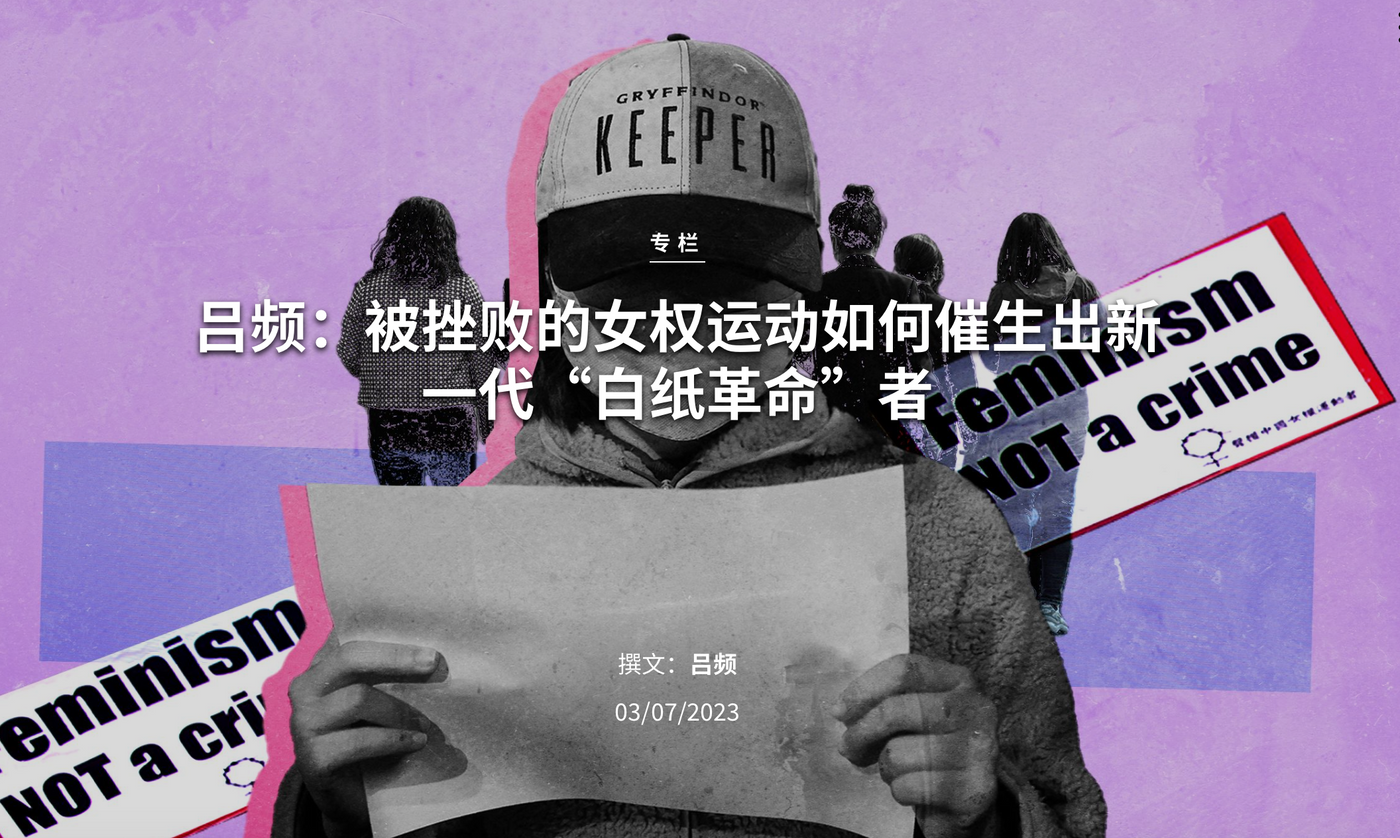
The "white paper revolution" is like a bolt of lightning, tearing into darkness, how shockingly sharp, yet short-lived and fragile. I am grateful to be illuminated by it, and feel ashamed that I am not one of it and have not paid the price for it. Therefore, I had the luxury of thinking in isolation from the peak of the movement to when the retaliatory suppression was still spreading, trying to grasp the uncertainty of social changes opened up by the movement. It is callous to use the sacrifice and suffering of others as material to build or solve puzzles. I forgive myself because I have a heart, and this pursuit will lead me to renew my own political decisions. What I want to debate is the following issues: the connection between the “White Paper Revolution” and the Chinese feminist movement, how it marks an important stage of the feminist movement, and the possibility of the feminist movement in the post-“White Paper Revolution” era.
As the feminist movement lost momentum, it spawned a new generation of revolutionaries
No one can piece together the full picture of the tabula rasa movement because most of the participants are hidden and faceless, and even if they know some of them, all they can share are fragmentary testimonies. It is presumptuous for others to make full judgments about a movement until it has been reliably and adequately defined primarily by its participants. Of course, there are various signs - including the well-known deeds of the girls arrested in Beijing - that point to the prominent proportion and leadership of women, as well as their connection to feminism. In short, instead of labeling this movement, it is valuable to discuss women's identities and how feminism has brought some people to the forefront of this movement.
The main contradiction of gender issues in China today is that women - including all ages and classes - are more powerful, independent and self-respecting than ever, while the state and society still stubbornly want to keep them in a subordinate position and refuse to do anything for them. Pay fair consideration for their labor contributions. Thus feminism took hold and represented women at the forefront of conflict. Women and feminism have grown in tandem with economic development, and the flip side of modernization's need for a "highly qualified" female workforce has created a new generation of rebels against patriarchy. The resources and space for feminism have always been limited until the Internet brought popularization. This not only means that the Internet can reach a wide range of people and popularize ideas, but also means that the Internet allows feminism to integrate with the daily lives of Chinese women, launching a large-scale discourse project that subverts the normalization of gender inequality, and provides support for all kinds of unspeakable women. Dilemma, developed an overly trenchant collection of critical interpretations and resistance strategies in which many people found themselves. The Internet has also created many fierce and influential debates, allowing women to strengthen their identity in fierce battles for gender.
In just ten years, perhaps millions of women have identified with feminism, built an expanded community that transcends the shackles of reality, and more effectively fought against patriarchy in their personal struggles. Although there are also dimensions of pink feminism and commercial feminism, the generally accepted tone of the portraits of Chinese feminists is one of daily anger and injustice, which is very special in an era of increasing authoritarianism. Largely as a result of being stunned by the militancy of these women, society has been forced to acknowledge that women's rights issues matter, even if its response has often been reactionary.
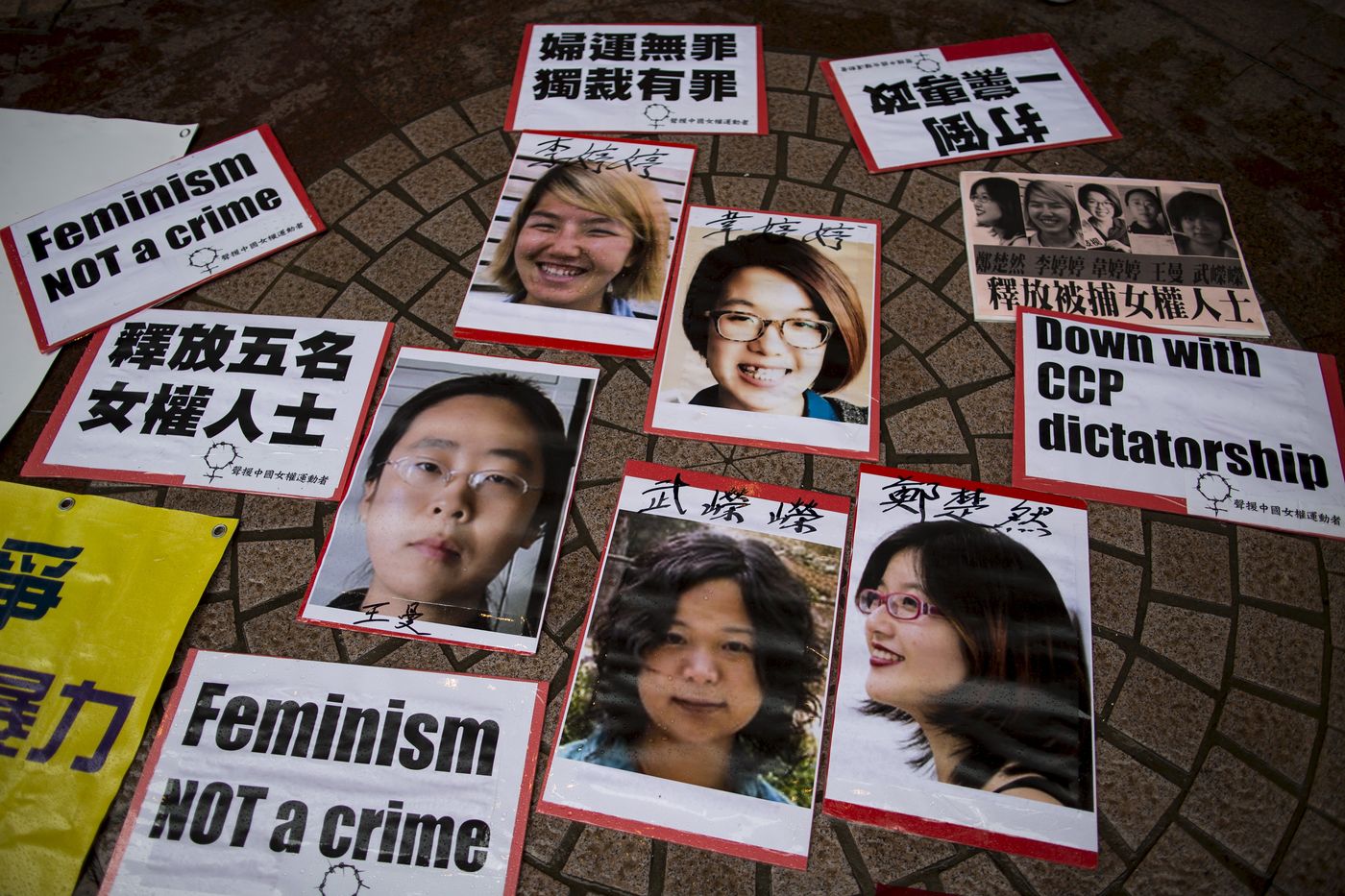
After 2015, activism—a feminist orientation dedicated to promoting social change, especially organized and strategic ones—continues to be criminalized. The "Five Feminist Sisters" incident in March 2015 was just a signal. Since then, the main manifestation of criminalization has not been criminal crackdowns, but continued harassment, threats and obstruction of organizers and activities. In conjunction with this, laws targeting "picking quarrels and provoking trouble" and "overseas NGOs" have made the resources and strategies of women's rights organizations illegal. On the other hand, activist discourse has been increasingly downgraded in the feminist community, unable to compete with bloggers who are better able to manipulate emotions. The root cause is that authoritarianism has constantly disciplined the boundaries of feminism, making people realize that anger can have legal or illegal forms, and also diverting channels for them to consume their anger.
From 2018 to 2020, activists were no longer able to set the feminist agenda, but they were still able to use their grasp of public opinion and professional operations to instigate from underground to aboveground, transforming some emerging focus concerns into large-scale mobilization and advocacy. In December 2020, the first trial of Xianzi’s sexual harassment case against Zhu Jun attracted hundreds of people to gather outside the court. This was an amazing event that demonstrated the mobilizing power of women’s rights and “Mi Tu”. In this day and age, people who dare to stand up and be physically present are so rare, and there are so few opportunities for them to practice their actions. These are the people who are most likely to show up next time. However, what attracted the most traffic this year was the "gender confrontation" phenomenon that reached its peak at the end of the year. It showed that the mainstream of online feminism was involved in a war of words with anti-feminist male netizens. Behind the seemingly heated confrontation was the default state. Responsibility – the ineffability of the “elephant in the room” and the disappointment that actions change paths.
China's contemporary feminist movement has actually always stayed within the boundaries of not touching politics - the legitimacy of the regime. It originated from a group of scholars within the system who had a sense of justice and were concerned about the women at the bottom who were deprived during the reform and opening up. They hoped to promote the release of legal resources to women and change the attitudes and behaviors of law enforcement officials through consultation rather than pressure. When scholars returned to the system, the movement was briefly taken over by NGOs—an industry that has almost disappeared in China—and turned to strategic mobilization facing the public. Then in the era of popularization, it became a vehicle for young urban women to express their grievances. In this process, the movement has indeed selectively strengthened its criticism and challenge of the system, but it has always advocated women's social, economic and cultural rights. The path is to use the rule of law as a lever to gender equality on the premise of recognizing state power. Equality changes. The movement never gave up on negotiations, despite the pressure it had to exert in order to open them. Of course people in the movement have personal opinions, but that doesn't mean they can inject them into the movement.
Since the vast majority of participants come with a sentimental desire to eliminate gender inequality around them, rather than with political opposition, this determines the mainstream of communication in the movement. But the deeper truth is that people have agreed on activities within the boundaries of legality and hope to fight for women's rights by making full use of the limited space, of course, provided there is still space. After realizing that the state's commitment to gender equality was not accountable, feminists still insisted on remaining in the political middle ground because they believed it maximized their movement and was more in line with women's current interests.
The problem is that the space for discussion and reform of the rule of law continues to be closed, and public opinion increasingly loses its function of instigating change. One example is the introduction of the Civil Code in early 2021 to set up a "divorce cooling off period" . This ignored the strong concerns of female netizens about freedom of divorce and domestic violence. Lawmakers remained unmoved, claiming that "there is no need to over-interpret it and should be viewed correctly" and so on. Under the general trend of shrinking the middle ground, feminists have gradually lost their political safe zone, and have been further exposed to organized political stigmatization campaigns. They have been dubbed "hostile forces", "cyber cancers" and so on.
Since Xi Jinping came to power, many other movements have been suppressed and lost public visibility, including human rights lawyers and the labor movement. The price paid for criminal persecution in the feminist movement is much smaller, and the scale of the movement has even been expanding against the trend. Although it must first be attributed to the loyalty, bravery and wisdom of countless feminists, in the end it is because the movement has not lost its legitimacy.
As far as the results of the movement are concerned, it has indeed greatly changed countless participants themselves. It has also powerfully impacted society and changed the landscape of public discussions related to women's rights. However, it turns out that it does not have the ability to change the country, or to put it more precisely, if the change of the country is divided into three dimensions: substance, procedure and structure, the substantive changes are - taking into account the resolution of some individual cases and some partial Changes in laws and policies, but not in procedures and structures, are largely absent and increasingly unlikely, not least because of the general trend of the country, as the movement itself is delegitimized and exhausted by countermovements.

In 2021-2022, the feminist movement has entered a particularly difficult stage. In April 2021, a large-scale online violence against feminists was triggered by an accidental incident . For the few feminist activists at the center of the storm, the consequences were far more than just losing their online accounts, but they were forced to remain silent. Leaving the movement front. What the public does not know is that the police were deeply involved in this incident and deployed strict and lengthy surveillance along the clues of cyber violence. The incident also created widespread fear among feminists, leading to further curtailment, secrecy and isolation of the community. Today, if a person does not have the opportunity to enter a deep feminist community, it is difficult to find information about feminist community activities on the public Internet.
In January 2022 , the "Women in Chains" in Feng County, Xuzhou shocked the whole of China. However, from the perspective of women's rights, this incident was a huge setback - the truth has never been revealed. The "Women in Chains" were imprisoned in disguise, except for a few minor figures. Beyond public punishment, systemic gender-based violence goes unaccounted for. Wu Yi's arrest has caused pain to the feminist community and sent a message that individual activists without organized background and experience are now being criminally persecuted. And, police harassment and threats extend to many “ordinary” feminists as they try to stage small protests, even just for posting on WeChat. When experienced organizers withdrew, "ordinary" feminists took on the responsibility but were eliminated. I even pessimistically believe that the biggest effect of incidents like the "Women in Chains" is to inflict a heavy blow on the inspired protesters. Exposed to authoritarianism, which ultimately actually strengthened the stability of rule.
In August 2022, the second instance of Xianzi's sexual harassment case against Zhu Jun opened. It was only a year and a half before the first instance of December 2020. The grand scene of hundreds of people gathering in front of the court was no longer there. It was not because people didn't want to support Xianzi, but because they couldn't organize it. Very few people can be present. The final defeat of the Xianzi case was another bitter taste, symbolizing that the "Mitu" movement was ultimately unable to knock on the door of the rule of law. In the past few years, clients like Xianzi have contributed their experiences of struggle and become the hub of the movement instead of activists who were forced to keep a low profile. However, they have also gradually faded away due to losing cases, online violence, and being banned from speaking out... .
In a year in which my business as an organizer was more muted than ever, and in which I had all but stopped discussing the movement publicly, a dark feeling lingered, wondering where else the feminist movement could go, even though it There is still such a vast community, but there are no longer opportunities and feasible paths. When the "Twentieth National Congress" is about to be held, I feel sick...

On the other hand, it soon proved crucial that the defeat of women’s rights during the year precipitated the ultimate awakening for many. In fact, in terms of technology, it is also related to the visual impact of short videos. The Xuzhou "Chain Girl" and the Tangshan beating incident caused thousands of women to experience a moment of "moral shock" together. The so-called "moral shock" means that people suddenly realize that they have been treated unfairly and re-recognize the world. What women are remotely aroused is not only sympathy and indignation, but also the fear and despair deep in the fate of gender: I will be treated so cruelly like them, and the country will not protect me. These people realize that there is no contract with the country where they were born and loved; in other words, deep down in their hearts, their self-perception is heading toward a break with the dominant ideology.
People have recorded their self-struggles and even crises in this process, because outside domination, it is extremely difficult for small individuals to find a foothold. In this state, "political depression" is really just a utterable word. Those who move from this state to a "blank paper revolution" can only be a minority among the minority. They have sublimated the anger accumulated in the feminist movement and completed a sufficient degree of self-politicization. Looking back at the above history, the most touching thing is that the feminist movement gave birth to a new generation of revolutionaries when it lost its momentum.
Why the “blank paper revolution” is possible and the possibilities it opens
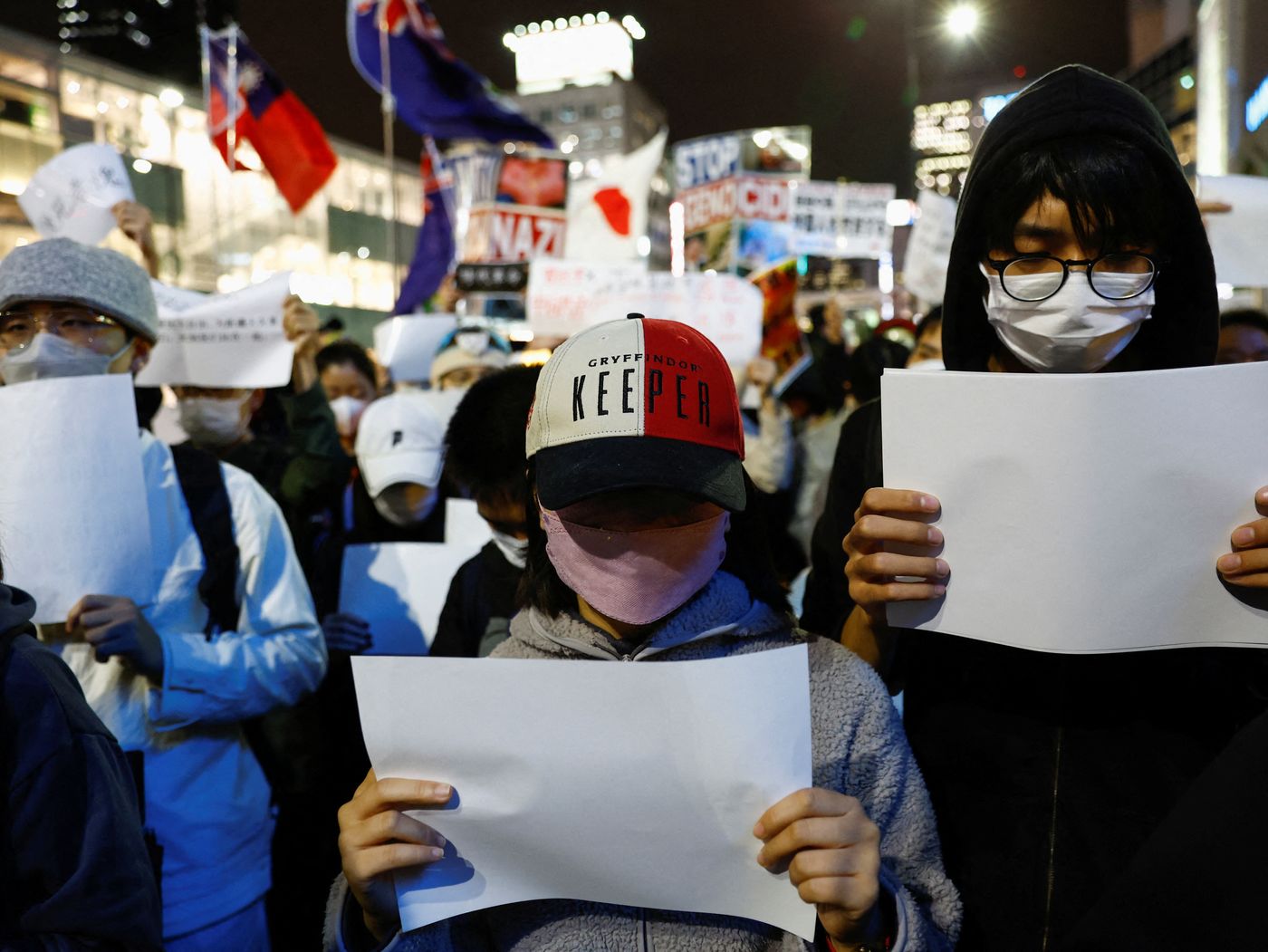
The “white paper revolution” jolted me out of my depression, and I am still experiencing what I learned from it. First of all, I re-realized the most basic fact: society will never die, no one is 100% obedient, and people are always looking for resistance. Everyone is fearful and has been taught by past repressions, and this is not shameful. Yet there is still territory in people's hearts that cannot be penetrated by authority, even if they appear to obey silence and go with the flow. This is of course related to the extent to which they are supporters of the regime and have been abducted by it. The difficulty of the Chinese middle class lies in relying on the resources allocated by the system, while families extend stability maintenance into the inescapable private sphere.
However, the bundling of systems is in order and not based on a single standard. Those "last generations" who have received higher education, live and work independently in big cities, are not employed in the system, are not trapped by basic livelihood like the grassroots class, and have no "weaknesses", are the freest atoms. Atoms seek their home, and people continue to retreat. When too many more public activities are stopped, the government begins to monitor small-scale reading groups and screenings... Then it goes a step further, private gatherings, alternative lives Methods and culture have become the carriers of politicization, and these carriers are more hidden and difficult to penetrate. Of course, this cannot be generalized. What I mean is that this society will always have relatively free atoms and their combinations and iterations, and this means that the country will never be able to rest on its omnipotence.
A fatal mistake of the "clearance" policy is that it does not divide and conquer various groups, but instead suppresses the vast majority of people to an extreme state almost indiscriminately, whether they are delivery workers or white-collar workers. This has created the so-called "majority" crisis, that is, the base of potential resistance is very large, and various groups can respond to each other because they have similar demands. The “blank paper revolution” also clearly shows that the ruling party has lost the possibility of self-adjustment and negotiated change. Taking to the streets is the final decision, but people are always pushed to a point in time when they have no choice but to take to the streets.
Scholars say that resistance does not arise only when oppression is severe; on the contrary, resistance occurs wherever there is an opportunity. The White Paper Movement did occur after the introduction of the "New Ten Articles" that announced relaxations, but the actual implementation was tightened. This state of affairs broke people's last patience. However, for the "blank paper revolution", the main driving force does not come from the identified opportunities, but from two other factors: the loss of inaction that can no longer be borne, and the sense of justice. It is almost destined that a revolution will happen in the big Man-made disasters in the city triggered these two points.
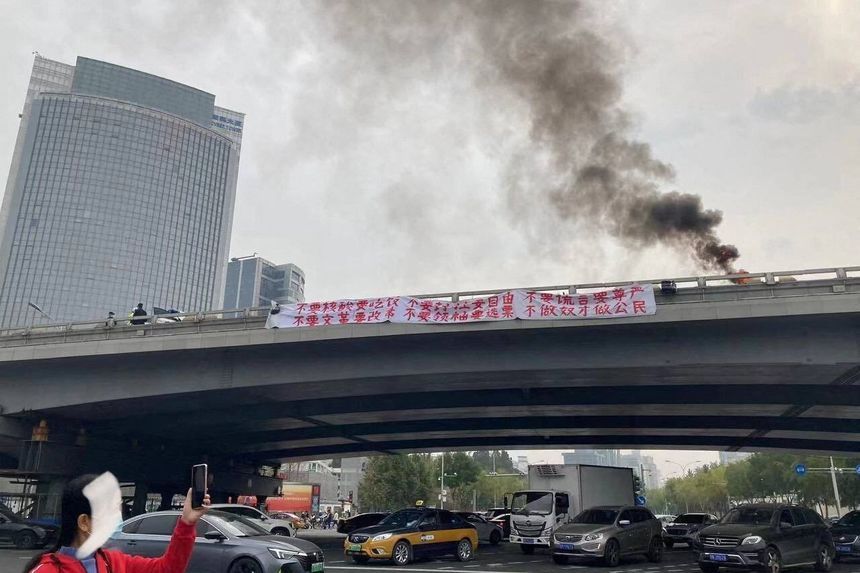
Peng Zaizhou's actions at Sitong Bridge were earth-shattering. At the time, I thought he was just a lone hero and that those who posted his slogans in the toilets were too scattered. In hindsight, without isolated actions, there would be no final connection. Although it is regrettable that China has never lacked pioneers like Peng Zaizhou, he was the only one who was seen and responded to. In fact, everything is because of people, isn’t it? The state has been able to monitor the entire society extensively and deeply, locking in everyone, and moving the red line forward to provide early warning and early suppression of threats before they occur. So why are there protests in the centers of big cities that have not been seen in decades?
First, experienced organizers have been identified and targeted, but the new generation who has stepped forward has not yet. Second, people have learned to use communication tools outside the wall. Communication monitoring on these tools can only rely on manual penetration, resulting in a much slower response than digital monitoring of WeChat. Third, the key lies in the product of the two parameters of speed and scale, that is, as long as enough people can be gathered in a short enough time, the alert can be broken, as long as there is a consensus that does not require too much communication as a basis. Again, such a breakthrough is rare, and its participants are only a minority among the minority. However, comprehensive suppression makes resistance particularly difficult. On the other hand, it also lowers the threshold for resistance to cause a crisis of governance. Several hundred people A few thousand people and some blank paper are enough. This can be said to be one of the paradoxes of authoritarian rule.
In the past, local governments were always set up as the scapegoats for governing. However, under the system of "fixing one person", everyone saw clearly that "clearing" means that everyone obeys the will of one person, so the "blank paper revolution" Also consensus is a direct challenge to that person. Although always catching any trace of uneasiness, the smooth holding of the "20th National Congress" made me think that China will enter an ultra-stable totalitarian era. But he turns out not to be that powerful - which is a huge giveaway. He didn't dare risk his power.
The Wall Street Journal said that Xi Jinping decided to relax the "clearance" after watching the video of the Liangmaqiao protest. This is consistent with Xi's mention in conversations with leaders of other countries that the liberalization was because "young people" couldn't stand it. I once again confirmed the belief that a person of action should have: anything is possible. And, the actions must be given sufficient recognition. Although there are economic factors and considerations of the epidemic being out of control in the post-analysis, it is undeniable, and the most precious thing is that some people have taken actions to really make changes happen. .
Change did not occur at the institutional level at all, which is certainly not the fault of the protesters, but perhaps also tells us that passionate revolutions have limited effects. Objectively speaking, the "white paper revolution" was like pressing the forced reset button on a system that had become stuck. When the system started to operate again, it was even lighter, and the threat of some dissent was once again eliminated. The procedures of retaliatory criminal persecution are so "compliant" that they are almost absurd, showing that protests, as an abnormality, are being absorbed by the daily operation of authoritarianism. As time goes by and the streets become peaceful, will those in prison be forgotten? Never even known, participants outside prison swallowed with fear.
For decades, the sacrifices of generations have been entangled in this system. What legitimacy do we have to encourage young people to be brave? In fact, I have always been a skeptic of explosive revolutions. Although I respect the participants of the "blank paper revolution", the meaning of the revolution itself in my opinion is mainly a kind of indicator, which indicates: the end of strategy, among other things. All possibility of action ends. But revolution itself cannot be strategized and prepared, and advocating revolution is immoral. I still accept the education given by the revolution, but I refuse to predict the future of China. I still want to return to my original intention and imagine the responsibilities that feminism can bear.
Feminism’s Responsibility in the “Post Blank Paper Revolution Era”
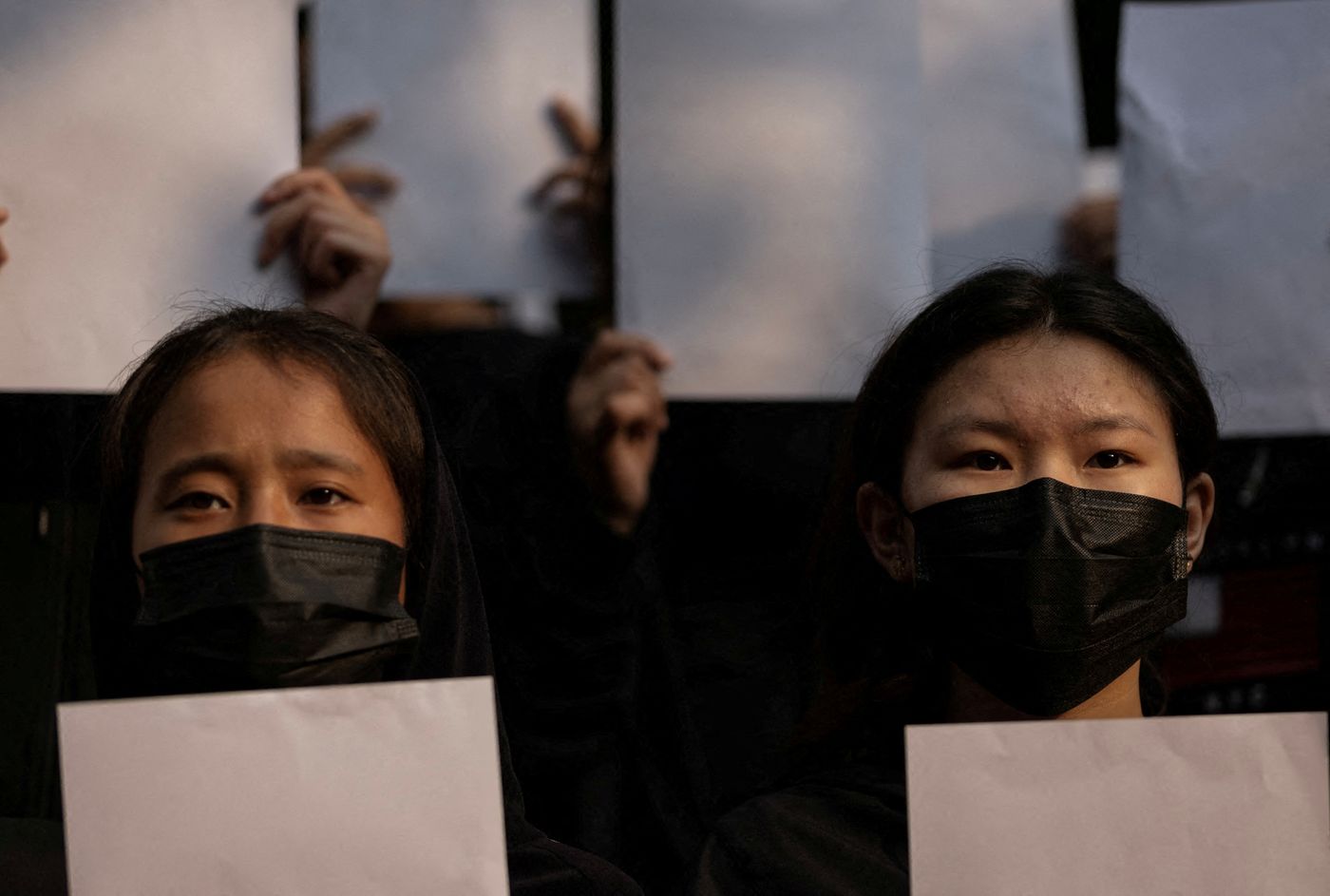
I want to praise those who make even modest efforts to sustain the movement. When movement is disintegrated layer by layer, its load falls on the tiniest units. People are still trying to connect and work on the movement. I see many anonymous feminists creating personal or partnership projects, often very creative ones. Maybe they disappeared or were exhausted before they had time to grow, but the endless emergence of these projects is the main underlying form of the movement today. If the movement cannot always be magnificent, then I accept that it is often an undercurrent and a fire. The most important thing is whether it can always reach people and maintain space for them. Since what rulers strive to do is to keep people separated and distrustful of each other, all emotional labor that creates social capital for a community is inherently contested. And these connections maintain physical and mental health, which is very important - in the end what people are fighting for is whether they have the strength and longevity to persevere.
I also want to praise women’s collective decision not to marry or have children, from the perspective that it prepares more female participants for social change. Unmarriage and childbearing are the result of women's passive resistance and non-violent non-cooperation when they realize that the system does not allow for negotiation. In this sense, they have indeed created what may be the most important crisis for this country. Can a country with negative population growth still have the hegemony of a great power? But this crisis itself does not need to be celebrated. My concern is first of all that it proves the power of women and women’s rights. In this era of unlimited blockade, after the ebb of social movements, feminism can still use the use of non-marriage and childbearing to build a front and demonstrate Its power over women. What is even more far-reaching is that being unmarried and infertile will liberate women’s bound bodies, time, and minds from the bottom of the patriarchal structure—family and daily life… and more women will become atoms of freedom in the long run. This seems like an exciting trend.
I have high hopes that the “blank slate revolution” will activate the renewal of feminist thought. It is very regrettable that in such a large community, there seems to be nothing that can stimulate speculative discussions. Without practice, there is a lack of inspiration. Persecution makes people defend themselves and stick together for warmth. Censorship prevents people from speaking freely. In fact, feminism can only support simple thinking logic and form a closed loop of thinking. However, as an ideological weapon, the charm of feminism is that it provides a sharp and penetrating critical perspective and supporting terminology, and then further complicates itself.
I don’t want to be a lazy person who only uses one set of words to adapt to the ever-changing situation. I am particularly eager to develop the function of feminism: to provide explanations for the most important issues in this country. The "blank paper revolution" breaks the closed loop of thought, doesn't it? In this era of violence and lack of hope, I will stick to my beliefs, but I want to get out. I realize that the proposition left behind by the "blank paper revolution" is huge uncertainty. The feeling at this moment is far better than the feeling of panic that everything is doomed but I don't know the way forward. I want to embrace it and still hope for the guidance of feminism.
On the occasion of Women’s Day, I would like to share two social activities, reproduced from:
Instagram: Chinesequeerswillnotbecensored
Twitter: Women’s Co-op & Chinesequeerswillnotbecensored
[3.8 Activities to support the arrested young women of the White Paper Movement]
Activity 1: [Photo 100·Supporting the arrested sisters of the White Paper Movement]

International Women's Day is approaching, and some young women in China are still facing political persecution for participating in the peaceful protests of the "White Paper Movement", including known activists Li Siqi, Li Yuanjing, Zhai Dengrui, and Cao Zhixin who are still in custody. They have been detained in the detention center for more than 70 days. As we celebrate the achievements of the women’s movement, we need to remember and advocate for our sisters who lost their freedom fighting for their rights. Therefore, we hope to collect 100 offline solidarity photos to give voice to arrested women.
way of participation:
① Print support posters, participate in offline rallies/parades related to Women’s Day, and take photos to upload to social media.
② Take a photo (without showing your face) holding a support poster or slogan at any place you wish to express your support.
You can indicate the place where the photo was taken and what you want to say, and submit it to the following platforms:
Instagram @Chinesequeerswillnotbecensored
Or on Twitter @women’s cooperative
Poster package: https://tinyurl.com/freeprotesters
Activity 2: Sign on March 8 to support the young women arrested during China’s White Paper Movement
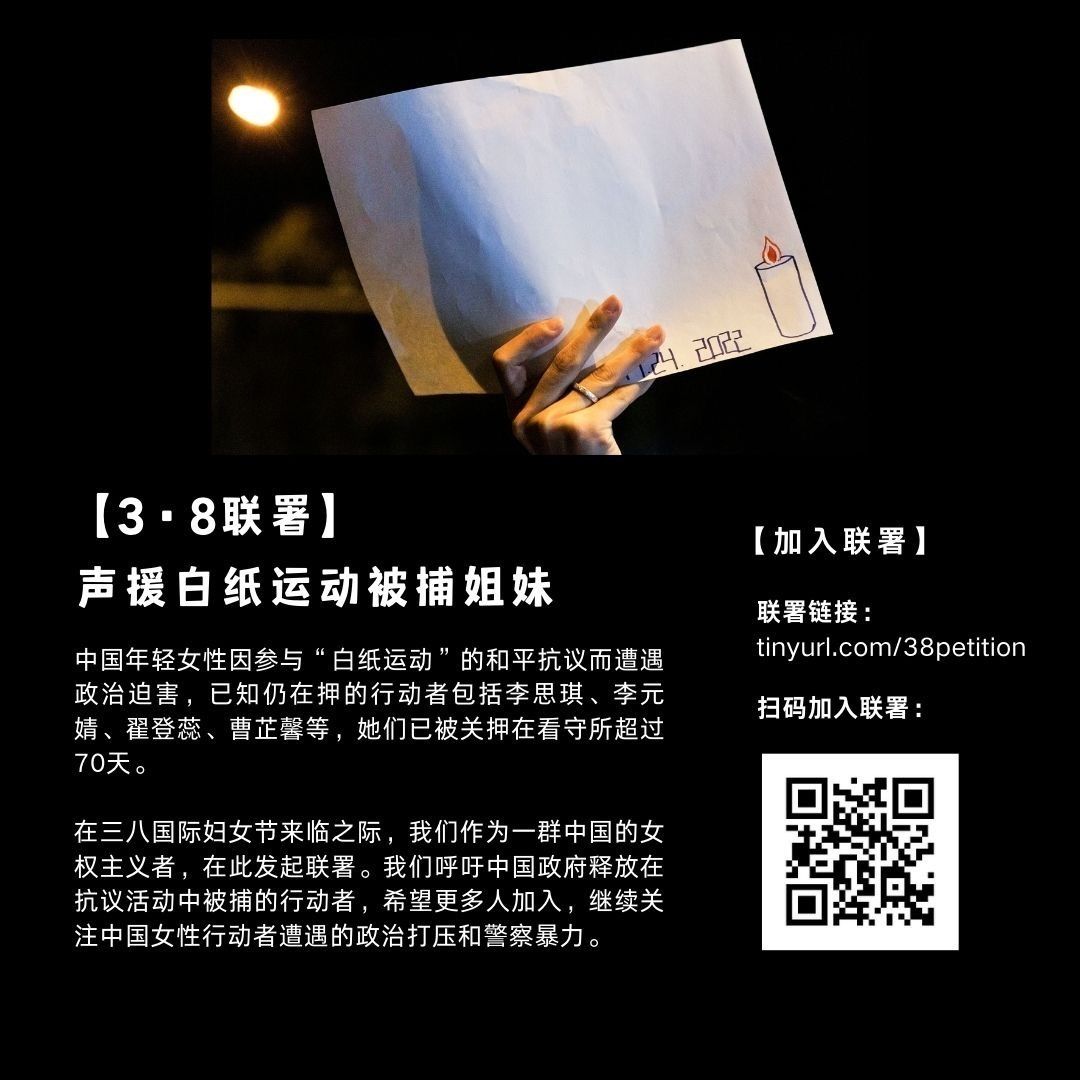
Some young women in China have suffered political persecution for participating in the peaceful protests of the White Paper Movement, including activists Li Siqi, Li Yuanjing, Zhai Dengrui, and Cao Zhixin, who are known to be still in custody. They have been detained in detention centers for more than 70 days. On the occasion of International Women's Day, as a group of Chinese feminists, we hereby launch a joint signature and put forward three major demands:
1. Release the arrested person
2. Stop settling scores
3. End the political persecution of women’s rights.
We call on more individuals and institutions to pay attention to the political repression and police violence encountered by female activists/feminists in China. The results of the joint signature will be mailed to the State Council of China to convey our demands.
Like my work? Don't forget to support and clap, let me know that you are with me on the road of creation. Keep this enthusiasm together!


